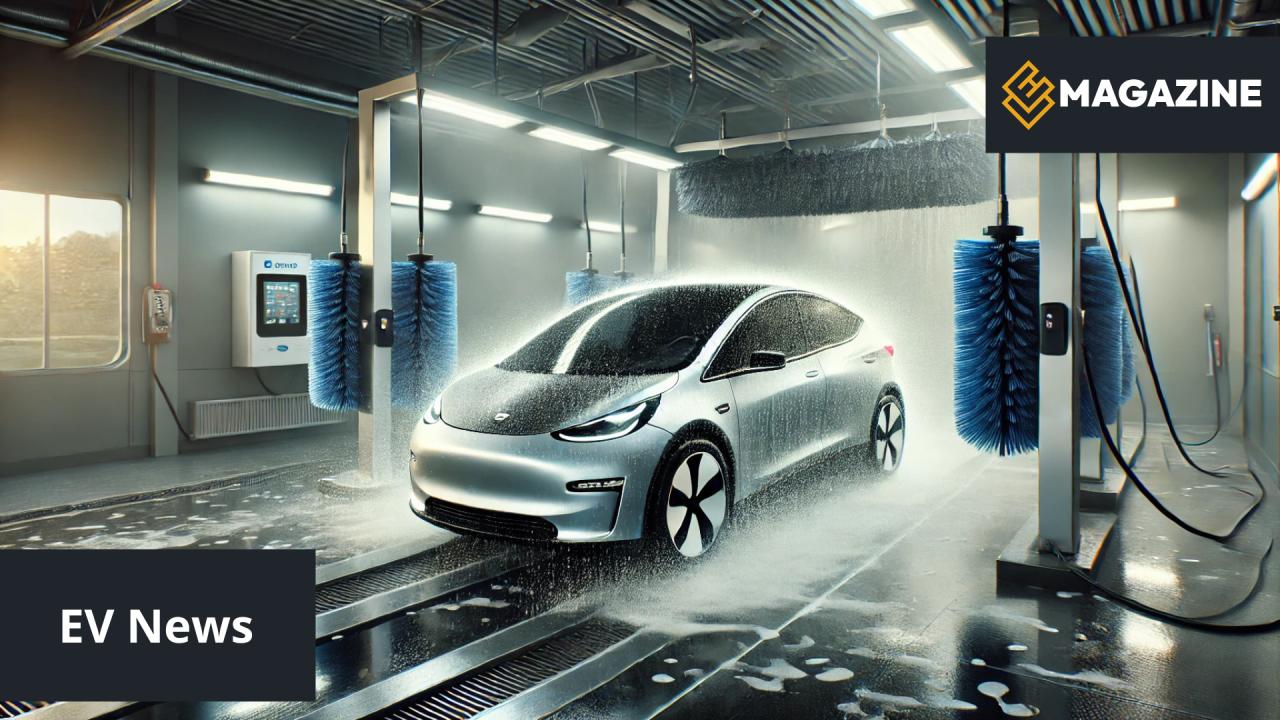Modern electric vehicles undergo rigorous waterproofing tests. Their batteries and high-voltage components (such as the electric motor and charging port) are sealed within hermetic enclosures certified with at least IP67 protection. This means they are dustproof and can withstand immersion in water up to 1 meter deep for 30 minutes :cite[2]:cite[8]. Automakers also conduct extreme-condition tests, including full submersion of the battery in water :cite[2].
What Happens in a Car Wash from a Technical Perspective?
Automatic car washes use high-pressure water, rotating brushes, and chemical cleaners. However, electric vehicles face fewer risks than internal combustion engine (ICE) cars:
- Battery: Located in the vehicle's floor, it is protected by a reinforced casing designed to withstand impacts :cite[8].
- Electric Motor: Unlike combustion engines, EV motors do not have open ventilation intakes that could allow water ingress.
- Charging Port: When properly closed, it is fully waterproof – much like a fuel tank cap in ICE vehicles.
Insights from Firefighters and Service Centers
Experts confirm that EVs are safe in wet conditions. Firefighters use specialized procedures to extinguish battery fires (such as the Emergency Plug to secure the vehicle), but an automatic car wash requires no special precautions :cite[3]. Moreover, service centers emphasize that maintenance schedules for EVs are comparable to conventional cars – meaning car washes do not accelerate wear on key components :cite[1].
Three Tips for EV Owners Before Entering a Car Wash
While EVs handle car washes without issue, consider these recommendations:
- Ensure the charging port is closed – just as you would check a fuel cap.
- Disable parking sensors (if the car wash requires turning off the engine) – some systems may react to brush movement.
- Avoid wax-based wash programs – harsh chemicals can damage paintwork, just as with any other vehicle.
Why Do Myths Persist?
Analysts suggest that skepticism toward EVs stems from their relative novelty. Many people are unfamiliar with technical details – for example, regenerative braking (which recaptures energy during deceleration) does not affect a vehicle’s waterproofing :cite[4]. To address such concerns, manufacturers are launching educational campaigns. Škoda Auto, for instance, guarantees that its EV batteries will retain at least 70% of their capacity after eight years, demonstrating long-term reliability :cite[1].
Fire Statistics: EVs vs. Internal Combustion Vehicles
Concerns about battery fires are often exaggerated. Data shows that there are 25 fires per 100,000 electric vehicles annually, compared to 1,500 fires for ICE cars :cite[3]. The risk of ignition in a car wash is virtually nonexistent – in fact, water helps cool the battery.

